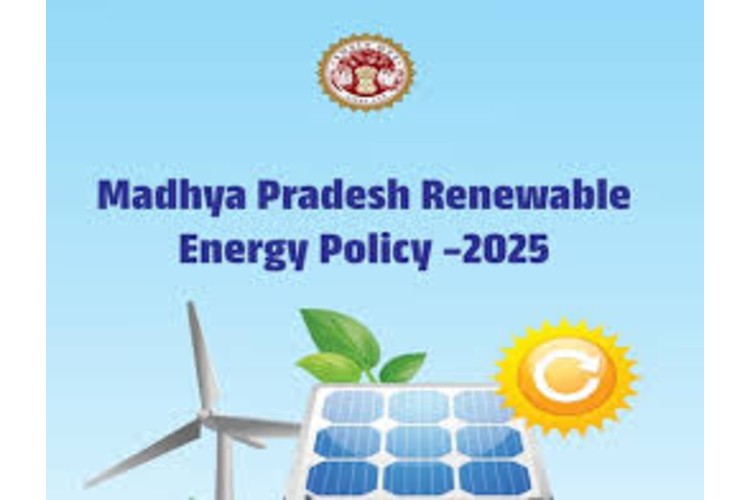The Madhya Pradesh government has launched the Madhya Pradesh Renewable Energy Policy 2025, aiming to source 50 per cent of annual power consumption from renewable energy by 2030. The policy, valid for five years, applies to all renewable energy projects of at least 500 kW, excluding decentralised systems. The state targets 20 per cent, 30 per cent, and 50 per cent renewable energy mix by financial years (FY) 2024, 2027, and 2030, respectively. While state government departments must achieve 50 per cent compliance by 2027 and 100 per cent by 2030. Other key targets include developing 10,000 MW of renewable energy parks and hybrid parks under the Indian government/Madhya Pradesh government schemes by FY 2027, as well as establishing 4,000 MW of renewable energy projects for power export outside the state by FY 2024, expanding to 10,000 MW by FY 2027. The investment targets for renewable energy generation include Rs 150 billion and Rs 500 billion by 2024 and 2027 respectively. The investment targets for renewable equipment manufacturing include Rs 40 billion and Rs 100 billion by 2024 and 2027, respectively.
The policy provides significant incentives, including a 100 per cent electricity duty exemption for ten years, a 50 per cent reimbursement on stamp duty for private land purchases, and a 50 per cent rebate on circle rates for government land. Green hydrogen projects will receive up to Rs 2 billion in investment assistance, Rs 50 million for infrastructure development, and up to Rs 100 million for effluent treatment plants. Mega industrial units investing over Rs 5 billion will be eligible for a customised incentive package. Energy storage projects will benefit from a 20 per cent exemption on registration fees, a 10-year electricity duty waiver, and up to 15 per cent stamp duty reimbursement. Developers of projects exceeding 1 MW capacity must pay a non-refundable registration fee of Rs 100,000 per MW, while projects supplying over 50 per cent of power to state discoms will be prioritised. Green hydrogen and biofuel projects receive the highest priority, followed by those developed by the Rewa Ultra Mega Solar Limited. Third priority shall be projects/parks with MNRE approval, and a letter of award/intent from a public entity/discom as a power procurer. Fourth priority would be project/parks developed by local bodies under the umbrella of the Madhya pradesh government, followed by large projects exceeding 250 MW.
The policy also focuses on creating green cities and zones, where cities meeting 30 per cent of their energy demand from renewables will be designated as green cities. Multi-stage development plans include solar-powered streetlights, substations, and vendors in the stage-I; rooftop solar for residential buildings exceeding 6 kW load, public transport and commercial institutions in stage-II; and community-based renewable farming and biogas manufacturing in stage-III. Green zones will be established for corporations consuming at least 30 per cent renewable energy, with eligibility criteria requiring a minimum annual turnover of Rs 500 million. These zones will benefit from a 100 per cent electricity duty waiver for ten years and a 50 per cent rebate on district-level land rates. Madhya Pradesh Power Transmission Company Limited and discoms will expand grid infrastructure, including new substations, to accommodate increased renewable energy integration.













